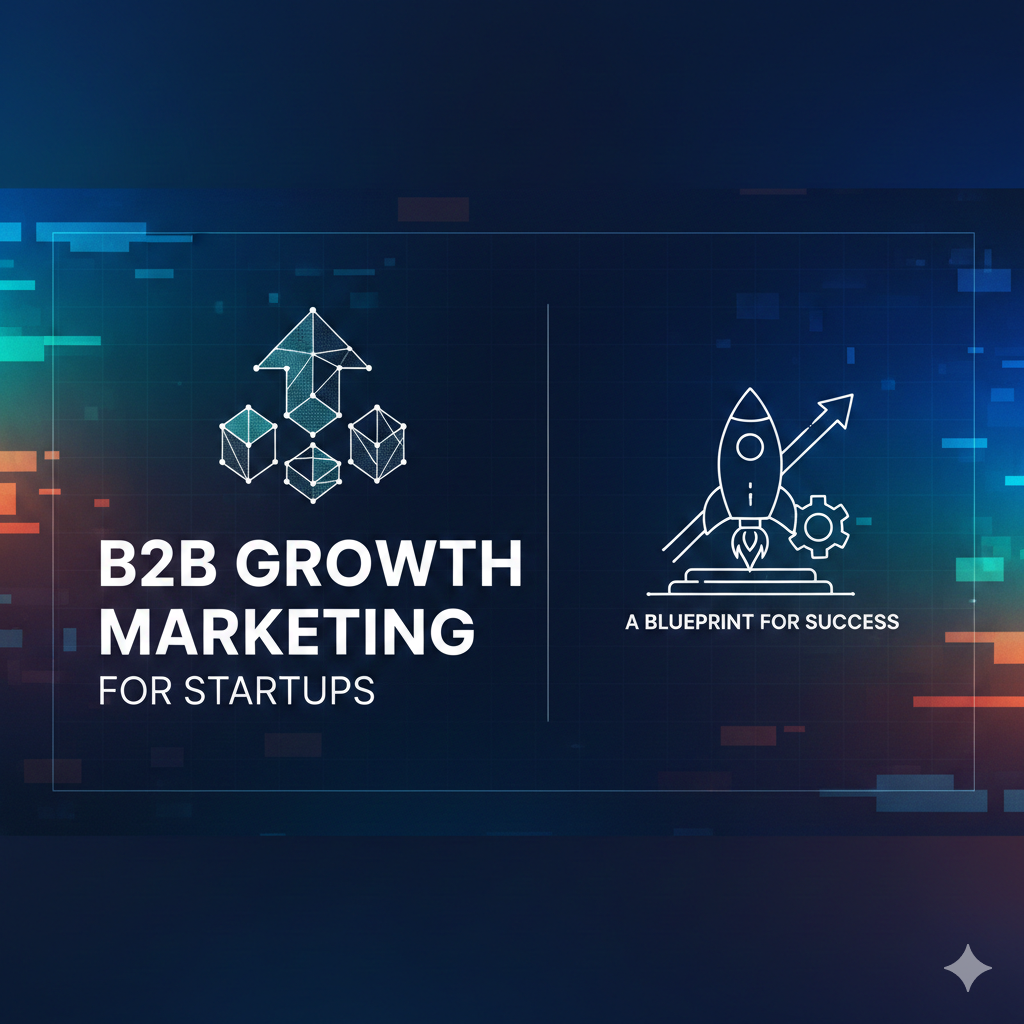AI-Powered Efficiency: Automate Your B2B Workflows for Explosive Growth

Let’s be honest, in the relentless hustle of B2B, every minute wasted on manual tasks is a potential deal lost. You're swimming in data, juggling complex processes, and trying to stay ahead of the competition. But what if you could automate the grunt work, make smarter decisions, and unlock unprecedented growth? That's where AI steps in.
It’s not just a futuristic buzzword; it’s the key to transforming your B2B workflows. You know, there’s a reason why B2B businesses fall behind.
AI-powered automation isn’t about replacing humans; it’s about augmenting our capabilities. It’s about letting machines handle the repetitive, data-heavy tasks so your team can focus on what they do best: strategic thinking, relationship building, and closing deals.
We’re talking about automating lead scoring, predicting customer behavior, and personalizing customer experiences, all with the intelligence of AI. For those businesses where innovation and efficiency are paramount, AI is your competitive edge. At Growthmak, we’ve seen firsthand how AI can transform B2B operations, and we’re here to show you how you can do the same.
Understanding the AI Revolution in B2B Workflow Automation
So, what’s the deal with AI in B2B? It’s not just about robots taking over; it’s about using intelligent systems to automate tasks, analyze data, and make smarter decisions. AI is the engine that drives intelligent automation, allowing you to optimize your workflows and unlock unprecedented efficiency.
Now, you might be thinking, "Is AI too complex or expensive for my business?" Let’s debunk a few myths. AI is becoming increasingly accessible and affordable, thanks to advancements in cloud computing and machine learning. And it’s not just for tech giants; businesses of all sizes can leverage AI to automate their workflows.
The evolution of AI automation is closely tied to the explosion of data and the development of sophisticated algorithms. Today, AI can analyze vast amounts of data in real time, identify patterns, and make predictions with incredible accuracy. This allows you to automate complex tasks, personalize customer experiences, and make data-driven decisions that drive growth.
And here’s a pro tip: understand the difference between task automation and intelligent automation. Task automation handles repetitive, rule-based tasks, while intelligent automation uses AI to learn, adapt, and make decisions. Intelligent automation is where the real magic happens. Growthmak has been seeing a lot of clients interested in The Future of B2B: How AI is Driving Growth and Innovation.
Identifying Key B2B Workflows Ripe for AI Automation

Alright, let’s get down to brass tacks. Where can you actually use AI to boost your B2B efficiency? The opportunities are vast, but here are a few key areas where AI can make a significant impact.
- Lead generation and CRM management: Imagine automating lead scoring and qualification with AI. No more wasting time on unqualified leads. AI can analyze data from various sources, such as website activity, social media, and CRM data, to identify high-potential leads. Predictive analytics can help you forecast sales trends and prioritize your efforts.
- Pro tip: Use AI to build a predictive lead-scoring model that continuously learns and adapts to your sales data. This will help you focus on the leads that are most likely to convert.
- Sales and customer onboarding: AI-powered chatbots can provide instant customer support and guide new customers through the onboarding process. And personalized customer journey mapping can help you tailor your interactions to each customer’s unique needs.
- Pro tip: Implement AI-powered chatbots on your website and social media channels to provide 24/7 customer support. This will improve customer satisfaction and reduce your support costs.
- Project management and task automation: AI can help you prioritize tasks, allocate resources, and generate reports automatically. This frees up your project managers to focus on strategic initiatives and complex problem-solving.
- Pro tip: Use AI to automate the generation of project reports and dashboards. This will save you time and ensure that you have access to real-time project data.
- Data analysis and reporting: Automating data cleansing and preparation can save you hours of manual work. And AI-driven insights and pattern recognition can help you identify trends and opportunities that you might otherwise miss.
- Pro tip: Use AI to automate the analysis of your marketing data. This will help you identify the most effective campaigns and optimize your marketing spend.
The Tangible Benefits of AI Automation for B2B Efficiency

Now, let’s talk about the real deal: what’s in it for your business? Why should you even consider AI automation? Well, the benefits are too good to ignore.
- Significant cost reduction through intelligent automation: Manual processes are a money pit. You’re paying for human errors, wasted time, and missed opportunities. AI automation eliminates these costs by handling tasks with precision and speed. We’re talking about real savings, folks.
- Increased accuracy and reduced human error: Humans make mistakes; it’s a fact. AI, on the other hand, operates with unparalleled accuracy, ensuring that your data is clean, your processes are consistent, and your decisions are sound. This translates to fewer costly errors and higher efficiency.
- Enhanced decision-making through data-driven insights: AI can analyze vast amounts of data and provide actionable insights that would be impossible for humans to uncover. This empowers you to make smarter, more informed decisions that drive growth.
- Improved customer experience through personalization: AI allows you to personalize every interaction with your customers, from targeted marketing campaigns to tailored customer support. This creates a more engaging and satisfying customer experience, leading to higher loyalty and retention.
- Real-world examples of productivity and efficiency gains: Look at companies that have embraced AI automation. They’ve seen dramatic improvements in productivity, efficiency, and revenue. For instance, a B2B SaaS company using AI to automate its lead qualification process can see a 30% increase in qualified leads.
- Statistics on AI implementation in B2B: Industry reports show that businesses using AI automation see a significant increase in productivity and efficiency. A study by McKinsey found that AI could contribute up to $13 trillion to the global economy by 2030, with a significant portion coming from B2B applications.
Practical AI Tools and Platforms for B2B Workflow Automation
Okay, let’s get into the tools. What AI platforms should you be considering? There’s a wide range of options, each with its own strengths and use cases.
- Overview of popular AI platforms:
- Salesforce Einstein: If you’re a Salesforce user, Einstein is a no-brainer. It brings AI directly into your CRM, automating tasks like lead scoring, opportunity insights, and customer segmentation.
- Google Cloud AI: Google Cloud AI offers a suite of powerful AI tools, including machine learning APIs, natural language processing, and computer vision. It’s perfect for building custom AI solutions that integrate with your existing systems.
- AWS AI: Amazon Web Services (AWS) provides a wide range of AI and machine learning services, including Amazon SageMaker, which allows you to build, train, and deploy machine learning models.
- Specific use cases for each platform in B2B contexts: For example, you can use Salesforce Einstein to automate your sales forecasting, Google Cloud AI to build a chatbot for customer support, and AWS AI to analyze your marketing data.
- How to choose the right AI tools for your business needs: Consider your specific requirements, budget, and technical expertise. Look for platforms that offer the features and integrations you need. And don’t be afraid to start small and scale up as you go.
- Highlighting the importance of data integration and AI model training: AI is only as good as the data it’s trained on. Make sure your data is clean, accurate, and relevant. Choose platforms that offer robust data integration capabilities.
Implementing AI Automation: Best Practices and Strategies

Okay, so you’re ready to dive into AI automation. But where do you start? It’s not just about flipping a switch; you need a strategic approach. Here’s how to do it right.
- Conducting an AI readiness assessment: Before you start implementing AI, assess your current workflows and data infrastructure. Are you ready for AI? Do you have the necessary data and resources? An AI readiness assessment will help you identify any gaps and ensure a smooth implementation.
- Developing a clear AI automation strategy and roadmap: Don’t just throw AI at random problems. Develop a clear strategy that aligns with your business goals. Identify the specific workflows you want to automate and create a roadmap for implementation.
- Ensuring data quality and security for AI implementation: AI thrives on data, but it needs good data. Ensure your data is clean, accurate, and secure. Implement robust data governance practices and choose AI platforms with strong security features.
- Training and empowering your team to work with AI tools: AI isn’t meant to replace your team; it’s meant to augment them. Provide comprehensive training and support to ensure your team can effectively use AI tools. Empower them to experiment and innovate.
- Case studies of successful AI automation implementations in B2B: Look at companies that have successfully implemented AI automation. These case studies can provide valuable insights and inspiration. For instance, a B2B logistics company used AI to optimize their delivery routes, resulting in a 20% reduction in fuel costs.
Future Trends: The Convergence of AI and Advanced B2B Workflows
The future of AI in B2B is bright, and it’s only going to get more exciting. We’re on the cusp of some truly transformative advancements.
- The rise of autonomous workflows and self-optimizing systems: Imagine workflows that can automatically adapt and optimize themselves based on real-time data. We’re moving towards a future where AI-powered systems can learn, adapt, and improve without human intervention.
- The role of AI in predictive maintenance and proactive problem-solving: AI can predict potential problems before they occur, allowing you to take proactive measures and avoid costly downtime. This is particularly valuable in industries like manufacturing and logistics.
- Exploring the ethical considerations of AI in B2B automation: As AI becomes more powerful, it’s crucial to consider the ethical implications. We need to ensure that AI is used responsibly and ethically, with a focus on transparency and fairness.
Conclusion:
Look, AI isn’t just a fancy tool; it’s a game-changer for B2B. It’s about unlocking new levels of efficiency, productivity, and growth. By embracing AI automation, you can transform your workflows and stay ahead of the competition.
And remember, you don’t have to navigate this journey alone. At Growthmak, we’re here to help you implement AI solutions that drive real results. Ready to automate your B2B workflows? Contact us today for a consultation. Let’s build the future together.
Don’t just take my word for it. Explore the world of AI automation. Experiment with different platforms and see what works best for your business. Don’t be afraid to ask for help. The AI community is vast and supportive.
Get Started with Growthmak Today!
Unlock your marketing potential with our expert team.





.svg)

